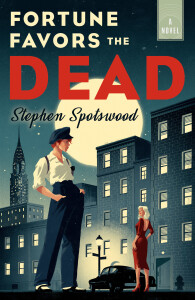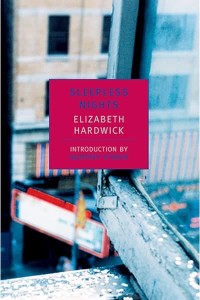
This witty, fast-paced mystery starts in New York City in 1945, with Willowjean “Will” Parker and her boss, famous detective Lillian Pentecost, investigating the murder of society matron Abigail Collins. Will has been Pentecost’s assistant and protégé for three years, the two having met when Will saved the older woman’s life with her knife-throwing skills.
Knife-throwing? Yes, at the time Will had been working as a roustabout in a traveling circus for five years, gaining some unusual skills. She’s the one telling this story, and her sassy, smart voice makes this a thoroughly enjoyable ride.
Pentecost, too, is unusual, and not just because she is a female detective at a time when women who stepped up during WWII are being forced into domestic roles while jobs are given to the returning men. She has multiple sclerosis, a progressively degenerative disease which at this point affects her stamina and gait but not her brilliant mind.
I loved both these characters before even getting to the story. Casting someone with a chronic disease as a major character is a rare and brilliant stroke. Plus, Will undermines all the stereotypes for women, not to mention circus workers, of the time. The duo quickly put me in mind of Rex Stout’s Nero Wolfe and Archie Goodwin, reimagined as women, but I love that Will is still a young woman, still finding her way in the world, unlike Archie.
On to the story! Abigail Collins is found in the locked study of her home during a big Halloween party at her mansion. She’s been beaten to death with a crystal ball, used in the séance held there, while seated in the chair where her husband killed himself a year before. Rumor holds that the ghost of her husband appeared during the séance, so many believe he is the murderer.
There are plenty of other, more corporeal, suspects. The psychic Ariel Belestrade has been on Ms. Pentecost’s radar for some time. Skeptical anthropology professor Olivia Waterhouse has also been investigating Belestrade for fraudulent practices and written her up in her most recent book. The psychic’s seductive power is brilliantly portrayed in some of the book’s most chilling scenes.
Even more complications ensue when Rebecca Collins, daughter of the murdered woman and a continuing frustration to her straight-laced brother, starts putting moves on Will, and Will finds herself responding to them.
Spotswood does a great job of bringing the period to life with details small and large, whether about circus life, nightclubs, or the mean streets of NYC. As a side note, the cover art boldly announces both its classic noir roots and Will’s unusual character. An intriguing cover will always make me look twice at a book.
For a fun read, you can’t go wrong with this cosy mystery with a bite to it. Will’s voice and personality alone are worth the price of admission. I’m looking forward to reading the other books in the Pentecost and Parker series.
Have you read a novel recently where you’ve been utterly charmed by the characters?

